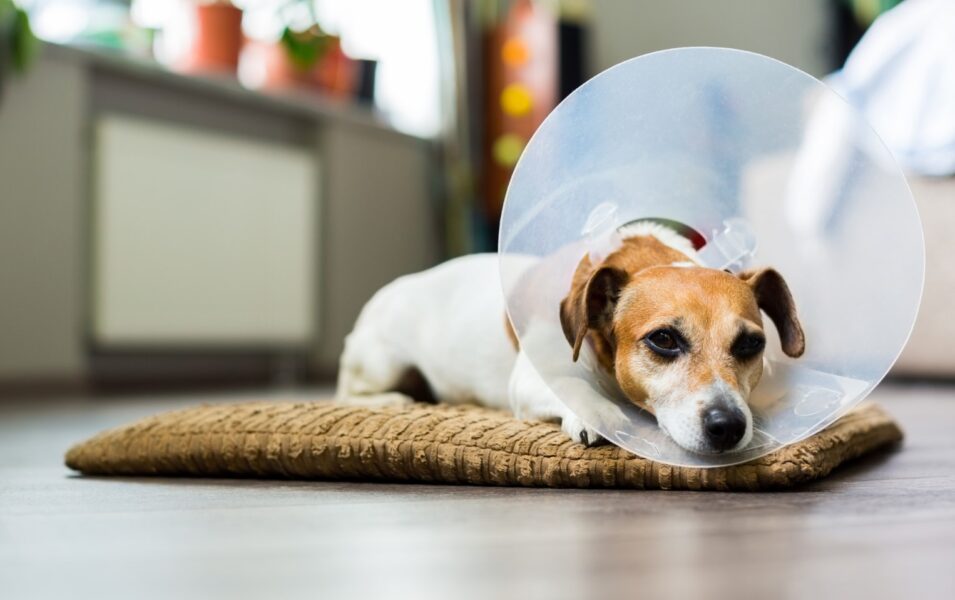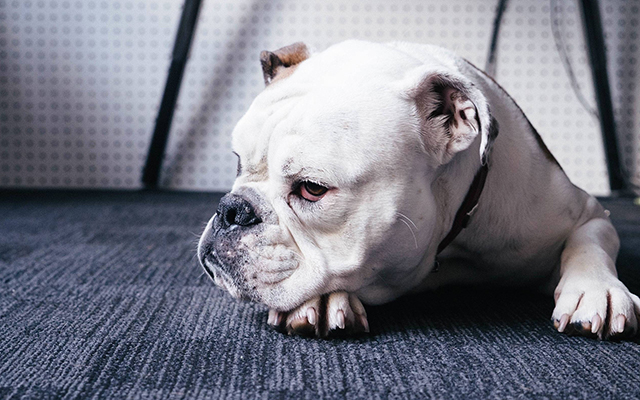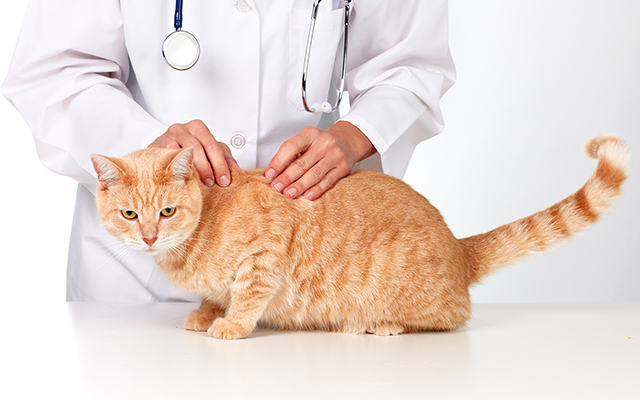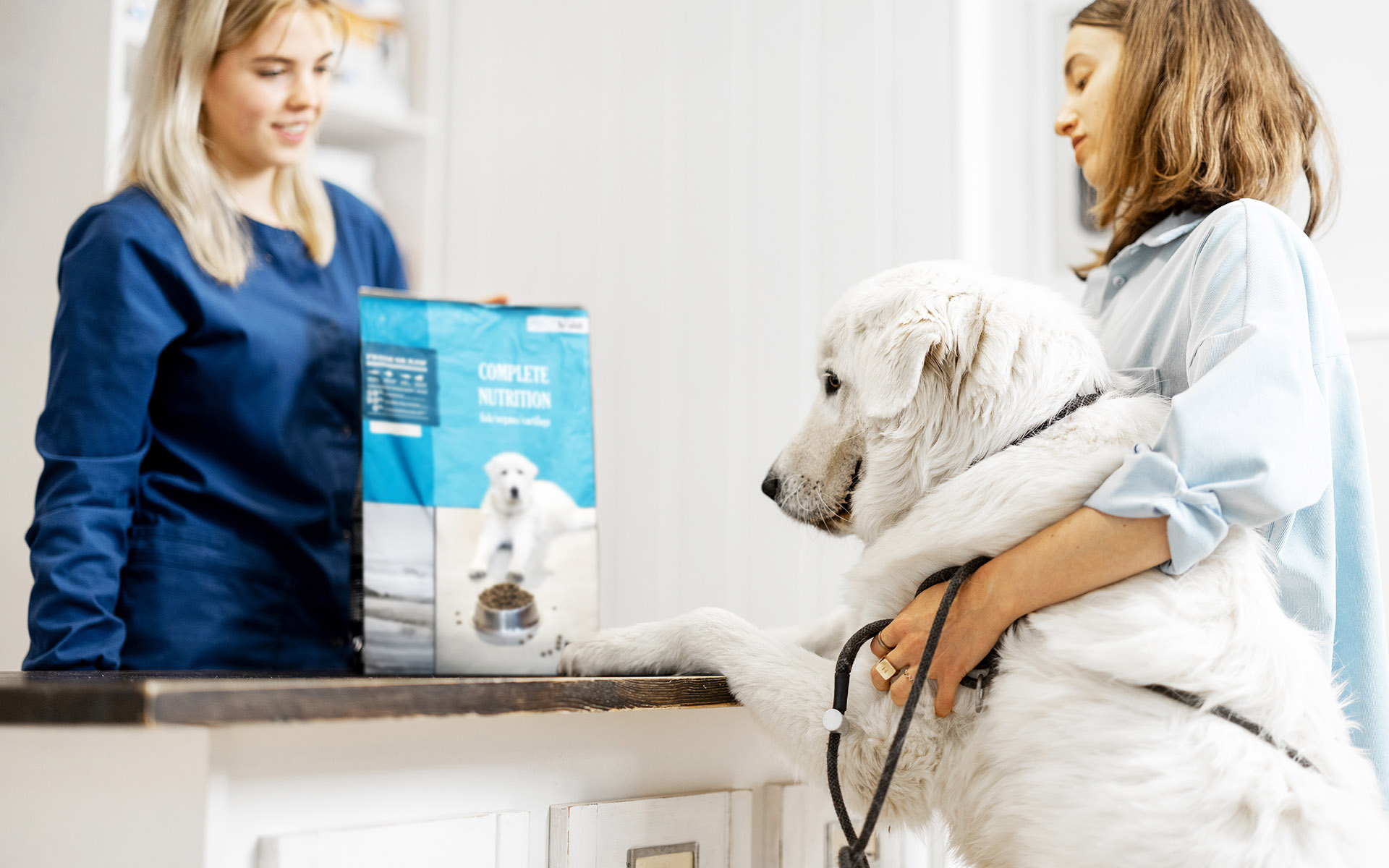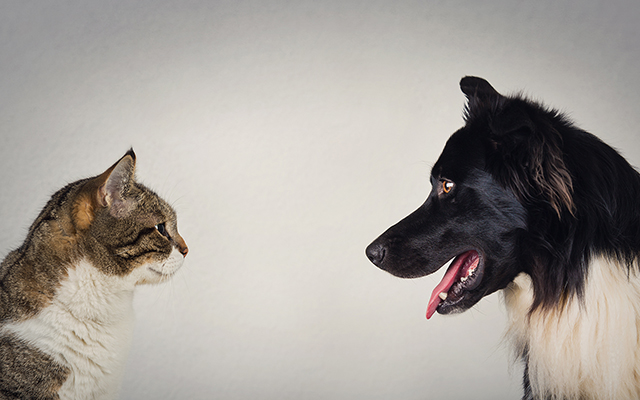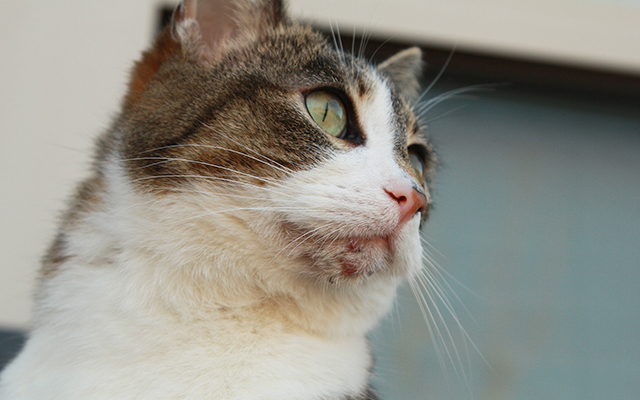If your cat or dog is scheduled for a medical procedure—such as being spayed or neutered, a biopsy or an exploratory surgery—there are many things you can do to make the experience less stressful for you and your pet. Here are some suggestions.
Always follow your veterinarian’s instructions
The information below is meant as general advice only. Your veterinarian may provide different instructions based on your pet’s condition, medical needs, and the exact procedure to be performed.
The week before surgery
Give your pet a bath or a grooming session.
Your cat or dog likely won’t be able to be bathed for several days after the medical procedure. They also may not enjoy being brushed if they’re still feeling sore. Provide them with a thorough grooming session (including brushing and washing their coat, trimming their nails and cleaning their ears) or take them to a grooming service ahead of time.
Wash your pet’s bedding.
Vacuum your pet’s cushions and put their bedding in the washing machine to ensure they can rest in a clean, fresh environment when they return. This will also help prevent dirt, dust, and allergens from irritating the incision area.
Prepare your home for post-surgery care.
Ask your veterinarian if you’ll need to restrict your pet’s activities after surgery. If they should remain in a closed room or a crate, or stay away from stairs, make the necessary arrangements ahead of time.
The night before surgery
Take away food and water bowls
Surgery usually requires anesthesia, which is preferable on an empty stomach to prevent regurgitation and vomiting. Depending on the exact time of surgery, your veterinarian may ask that you don’t let your furry friend eat or drink after midnight. Before going to sleep, remove your pet’s bowls and keep the toilet lid closed.
On the day of surgery
Follow your veterinarian’s instructions regarding medication.
If your pet requires medication, your veterinarian will tell you whether you should give them their usual dose or hold off until after surgery.
Show up at the veterinary hospital on time.
The veterinary hospital will likely recommend running several tests before surgery, such as a blood test and X-rays. Plan for traffic and detours to arrive on time, so everything can go according to schedule and avoid unnecessary stress for you and your pet.
Don’t linger.
If your four-legged friend is undergoing a complex procedure, you may understandably feel anxious or emotional. When it’s time to leave your cat or dog in the hospital’s care, keep goodbyes brief to help your pet remain calm for surgery.
Remain available during the medical procedure.
If you won’t be staying on-site, provide a phone number you can be reached at and remain available. Your veterinarian may have questions before or during surgery requiring an immediate answer.
Following surgery
Stay at home to care for your pet.
After picking up your pet, return home and follow your veterinarian’s instructions closely. In most cases, you’ll need to stay with your pet for the rest of the day to monitor their recovery and to give them medication. Make sure they don’t lick or bite their sutures. Limit their activity, even if they seem to be doing fine, in order to give the incision time to heal.
Contact your veterinary clinic if your companion won’t eat or eliminate for more than a day or if you have any questions. With food, water, love, and care, they’ll soon be back to their usual self.

